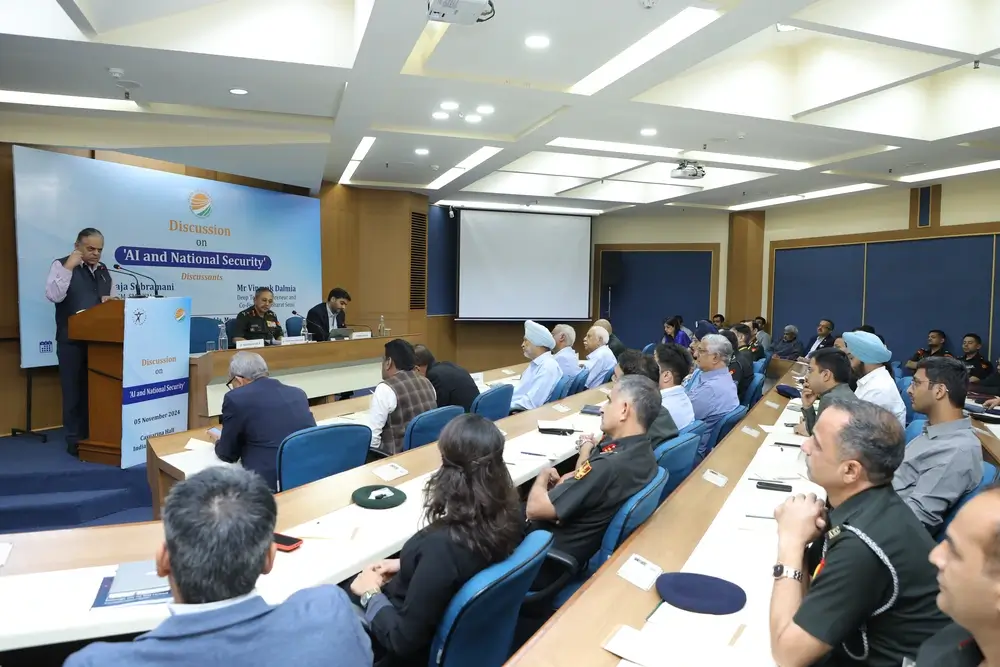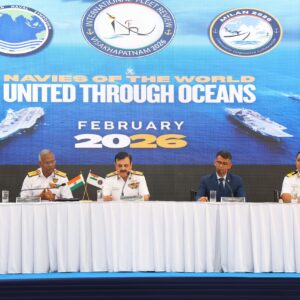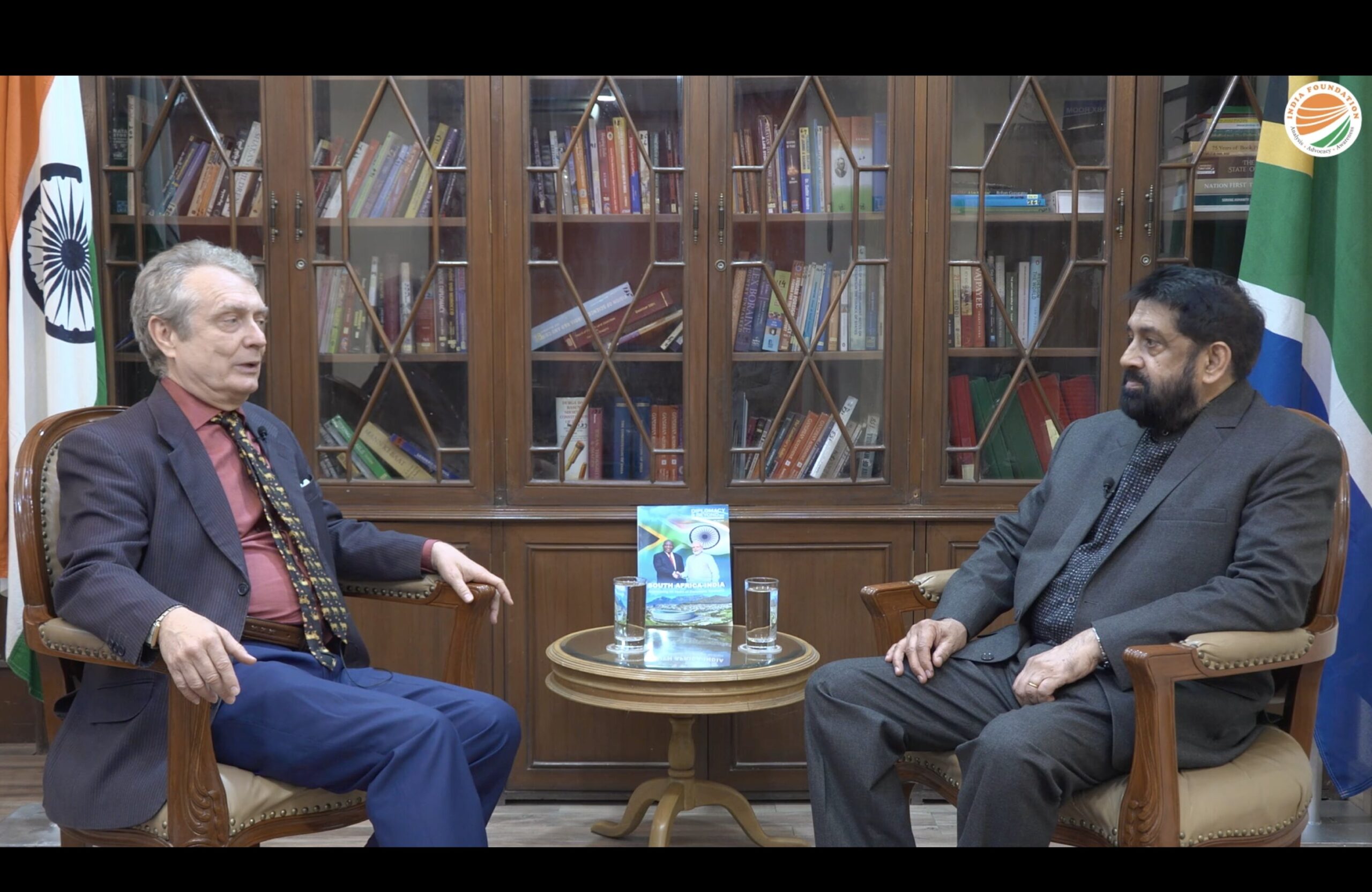India Foundation hosted an insightful discussion on ‘AI and National Security’, focusing on the critical dimensions of Artificial Intelligence (AI) in the context of national security. The event explored the implications of AI on modern warfare, intelligence gathering, and technological sovereignty.
Speakers:
- Lt Gen Raj Shukla (Rtd), Member, Union Public Service Commission (UPSC).
- Lt Gen NS Raja Subramani, Vice Chief of Army Staff, Indian Army.
- Vinayak Dalmia, Entrepreneur & Co-founder, Bharat Semi.
Discussion Highlights
Lt Gen Raj Shukla:
Lt Gen Raj Shukla set the stage by delving into the use of AI in global disputes and active conflict zones like Ukraine and Israel. He stressed on the following aspects:
- The economic and operational challenges posed by AI in warfare, particularly in artillery and infantry.
- AI’s potential to accelerate intelligence processing and information dissemination, enhancing both deterrence and warfighting in the Indian context.
- The critical need for nurturing domestic talent in AI to meet defence and security needs.
- A critique of governments worldwide for overregulation stemming from a lack of understanding of technological complexities of AI.
- The application of the principle of necessity under international law in AI-driven conflict scenarios.
Lt Gen NS Raja Subramani:
Lt Gen NS Raja Subramani offered an operational perspective, emphasizing on the following aspects:
- The shift from network-centric to data-centric warfare, underscoring AI’s importance in transforming intelligence sources, including OSINT, HUMINT, SIGNIT, GEOINT, ELINT, and IMINT.
- The role of AI in the Observe, Orient, Decide, Act (OODA) loop, enhancing decision-making cycles in warfare.
- Challenges posed by AI-driven misinformation and disinformation campaigns, influencing cognitive warfare strategies.
- AI’s integration into Lethal Autonomous Weapon Systems (LAWS), UAVs (Unmanned Aerial Vehicles), and Underwater Warfare systems. Case studies, including Ukraine’s innovative use of smart systems to neutralize and deny access to adversarial naval forces in the Black Sea were discussed.
- The Indian Army’s efforts in adopting AI for border management, radar surveillance, cryptography, and war gaming, along with setting up dedicated research centres for training personnel in AI.
- The importance of skilled workforce development to maximize AI’s potential in defence.
Vinayak Dalmia:
Vinayak Dalmia highlighted the strategic need for India to embrace Military-Civil Fusion (MCF) to maximize AI’s potential. The key insights he provided were as follow:
- India’s progress in leveraging AI for supply chain management, data analysis, and decision-making but the need for greater innovation in defence applications.
- Advocating for indigenous AI development, emphasizing self-reliance (Atmanirbharta) by drawing parallels to India’s successes with UPI and Digital Public Goods. He focused on the role of Indian companies in development of AI.
- Urgency in bridging the technological gap between India and global powers like the USA and China.
- He focused his attention on strategies to achieve interoperability between legacy systems and emerging defence technologies, so that there is integration among existing defence infrastructure to provide for a cost-effective solution to this issue.
- Increasing funding for AI research and development to transition India from a global consumer to a global developer of technology in the aspect of Artificial Intelligence. With the growing demographic, India should leverage on these aspects.
Conclusion:
The discussion underscored the transformative potential of AI in national security, highlighting the importance of innovation, workforce development, and indigenous technological advancements. The speakers collectively emphasized the need for India to develop strategic frameworks to harness AI’s capabilities for defence, aligning with global trends while fostering domestic talent and infrastructure.
This event reinforced India Foundation’s commitment to addressing critical issues at the intersection of technology and security, paving the way for a more resilient and secure Bharat.





